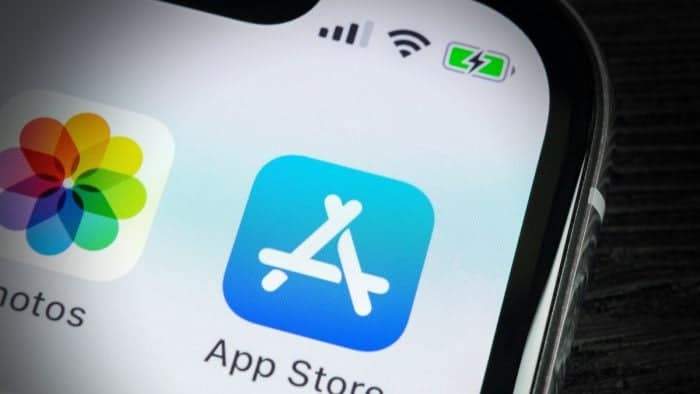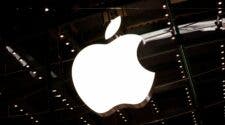Apple has been at the hub of several controversies in recent times. However, the one bothering on its anti-monopoly behaviors with regards to its App Store generates more controversies. Well, Apple is not the first company to be in this position. Back in the day, Microsoft used to be at the center of such controversies. Several court orders and government laws put control on Microsoft’s expansion. Let us look at five important points with respect to Apple’s recent issues.

1. Apple, the Microsoft of two decades ago
Exactly this week two decades ago, Microsoft and the US Federal Department of Justice formally reached a settlement. They were able to resolve the antitrust lawsuits that followed the bundling of Windows with Internet Explorer. Although Microsoft escaped the worst-case scenario of being split, it also paid a heavy follow-up price.
Under the pressure of anti-monopoly regulation, Microsoft stopped its previous expansion and gave up participating in the exclusive agreement. This then gave room for the growth and development of the software industry. This lead to the end of the Gates era and the beginning of the Ballmer era which focuses on financial performance.
Before encountering antitrust lawsuits, Microsoft was in its heyday, dominating the entire PC software industry. In fact, the company was the world’s most valuable listed company. Twenty years later, Apple, whose industry status is also booming, is facing the same regulatory situation as Microsoft in the past.
Apple’s trend is similar to Microsoft’s of 20 years ago
Under the pressure of increasing anti-monopoly supervision by governments of various countries and the pressure of anti-monopoly litigation from developers, the once-proud smartphone giant Apple is making concessions step by step. Also, the once indestructible application ecological castle is gradually disintegrating.
In the past fifteen years, Apple’s most important hardware product is undoubtedly the iPhone which hit the road in 2007. The following year, Apple’s most important software, App Store, was released. The App Store is technically responsible for Apple’s growth in the mobile application developer community. It drives the prosperity of the iOS ecological platform and laid a solid foundation for the rapid growth of the iPhone business.
There is no doubt that the iOS platform is the most valuable mobile Internet platform in the world. Last year, the overall revenue of the iOS ecosystem platform was as high as $643 billion. This is a year-on-year increase of 24%. The total sales in the Apple App Store hit $64 billion, a year-on-year increase of 28%.
On the other hand, Apple provides mobile application developers with a platform for application sales and distribution. Therefore, Apple charges developers a 30% commission share, which is commonly known as “Apple Tax”. Unlike the Android system, iOS users cannot install and purchase apps on their own from other channels. All app sales and distribution must be carried out through the App Store. There is no escape for developers to give a chunk of their money to Apple.
2. Apple Tax has been under fire for 10 years
If you are just hearing about the fight against “Apple Tax” (30% commission), this battle has been on for some time. Over the past 10 years, Apple always insists on a 30% share ratio and refuses to give in. Of course, Apple is also facing constant lawsuits and class-action lawsuits, from consumers to small developers to large developers.
Apple’s attitude is very firm: it follows every lawsuit to the end. In many cases, these lawsuits lasts for several years, even at the expense of appealing to the Supreme Court of the United States. American consumers have been suing Apple since 2011 to break its monopoly on the distribution and sale of apps. Also, Americans believe that Apple’s 30% of app shares drive up app prices in stores.
Despite successive losses in the Federal District Court and the Court of Appeals, Apple eventually appealed to the Supreme Court of the United States. Finally, the U.S. Supreme Court approved the class action with a 5:4 vote in 2019. The U.S. Supreme Court wrote in its judgment, “If retailers engage in monopolistic behavior and cause consumers to pay higher prices than competing markets, then how the retailer builds relationships with upstream manufacturers or suppliers is not the point.”
However, the Supreme Court only ruled that consumers can sue Apple in class, but did not directly rule that Apple constitutes a monopoly. This class action antitrust case has returned to the lower courts. This means that Apple can continue to advance the lawsuit and continue to appeal to the Supreme Court. Of course, this may last for another decade or more.
3. Apple is under pressure to make concessions
In 2017, Apple took the lead in making concessions to the Chinese market. In June of that year, Apple expanded the scope of Apple tax collection to rewards, and defined the behavior of readers to reward creators as “in-app purchases”. WeChat, therefore, canceled the reward function of the iOS version. This regulation has caused great controversy in China. Chinese users generally believe that online rewards are voluntary gifts, not purchases.
But only three months later, Apple clarified the App Store policy and abandoned the commission requirement for rewards. However, it requires all platforms to also not draw from rewards and must give the recipients the full amount. Nevertheless, if gifts related to digital content and services are rewarded, they will still be classified as in-app consumption and face a commission from Apple.
This is Apple’s first concession on the App Store issue. At that time, many analysts believed that Apple took into account the huge Chinese market and did what it had to do. However, the real regulatory crisis comes from the antitrust pressure of the US government.
4. Is Apple really changing?
Most recently, Apple has been making concessions on the “Apple Tax” issue. On August 26, Apple announced that it had reached a settlement with iOS app developers in a class-action lawsuit and agreed to pay a settlement of $100 million to many American small app developers. However, this settlement agreement still needs to be approved by the Federal District Court for the Northern District of California before it can take effect.
The payment of the $100 million settlement will be in the name of the “Small Developer Assistance Fund”. This money will go to iOS app developers who earn less than $1 million in the Apple App Store each year. The amount received by each developer ranges from $250 to $30,000.
But more important than losing money is that, in accordance with this settlement agreement, Apple agreed to further “clarify” the app store’s policies, acquiescing to app developers for iOS and iPad OS to use emails with the consent of users.
This settlement agreement originated from a class action lawsuit two years ago. In June 2019, a number of small and medium-sized developers filed a class-action lawsuit against Apple in the Northern District of California. They allege that Apple abuses its exclusive position in the distribution of iOS apps and in-app digital products.
Apple has paid so much in settlements
The law firm acting in this lawsuit is Hagens Berman, who has extensive experience in prosecuting Apple. In 2016, they initiated a class-action lawsuit against Apple on behalf of many publishers, accusing Apple of forcing publishers to increase the price of e-books. The final outcome of that lawsuit is a $560 million settlement.
At the same time, Apple was hit again in South Korea. The South Korean Parliament passed an amendment to the “Telecom Business Law”. This requires the app store to allow users to make in-app purchases through multiple payment methods. This bill undoubtedly aims directly at Apple and Google. After the implementation of the new law, Apple must not only loosen the payment restrictions on the app store but also must not delay the review process of apps. Of course, it can not even think of arbitrarily removing apps from the app store.
In Japan also, Apple has an agreement with the Japanese Fair Trade Commission (JFTC). The company will allow “reading apps” such as Netflix, Spotify, Kindle, and others to include direct links for payments.
Apple has no concession for the all-important gaming market
For Apple, the game market is the real source of revenue for the app store. According to evidence submitted by Epic, up to 81% of Apple’s app store revenue in 2016 came from games. Apple CEO, Cook, also admitted personally when he testified in court that most of the revenue of the Apple App Store comes from games.
This means that Apple’s concessions to small developers and to developers of “reading” apps in the past two weeks are just a strategic and soft gesture, just like giving up rewards in China. It seems that Apple is changing and making concessions, but it will not cause huge losses to its tens of billions of dollars in app store revenue each year. However, when it comes to gaming applications and services, it may have an immediate impact on Apple’s earnings.
5. Where is Apple facing lawsuits?
Some markets and governments are more voracious than others. While Apple is having its way in many markets, it is facing stiff opposition in some regions. In addition to the US, South Korea, and Japan markets, Apple is also facing antitrust investigations in the EU, UK, and India markets. After the complaints from developers such as Match and Spotify, the European Commission announced last year that it launched an antitrust investigation on Apple App Store share and suppression of competitors.
What exactly do developers want? Spotify CEO, Daniel Ek, who has testified against Apple in the United States and Europe, wrote on Twitter that “what we want is to restore competition once and for all, not to make a concession through arbitration”. Epic’s lawsuit against the monopoly of the Apple App Store in the US market has completed the hearing and is awaiting the outcome of the trial.





